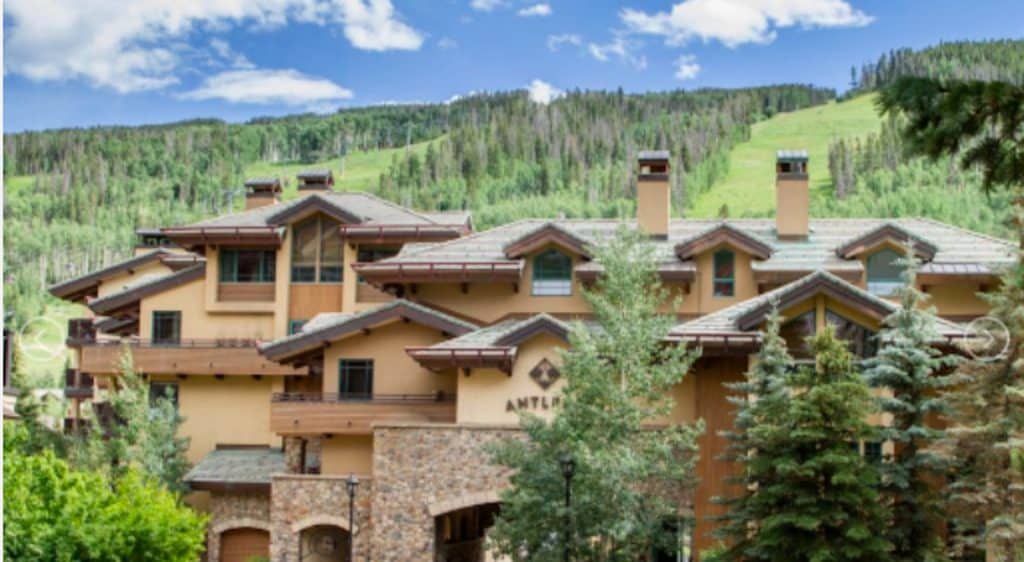A bill hiking taxes for many short-term rentals in Colorado dies in first committee hearing
Senate Bill 33 would have quadrupled taxes for any property used as a short-term rental for more than 90 days

Vail Daily archive
A bill that would have significantly grown taxes for thousands of short-term rentals in the state was killed in its first committee hearing late Tuesday even after the sponsor attempted to make changes to the legislation.
In its original form, Senate Bill 33 would have required any property used as a short-term rental for more than 90 days per year to pay the state’s lodging tax. Colorado’s property tax assessment rate for lodging properties in 2023 was 27.9%. For residential properties, it was set at 6.765%.
Sen. Chris Hansen, a Denver Democrat and prime sponsor of the bill, proposed changing the bill into only a study of short-term rental impacts. His amendment also would have prevented hotels from reclassifying their units as short-term rentals to avoid higher taxes.
The committee rejected those amendments and the overall bill.
Hansen disclosed the concept for the amendments to the Vail Daily last week and some who were opposed to the bill, including Chris Romer from the Vail Valley Partnership, said they would support those changes.

Support Local Journalism
Once the details of the amendments were released, however, the support wasn’t there. After testifying against the amendment, Romer said he was concerned that the way the study was phrased in the amendment was biased.
“A study should be neutral and academic and not have a predetermined outcome,” Romer said. “Asking for recommendations on tax policy is essentially leading the witness.”
Another concern Romer and other opponents of the bill had is that the hotel element of the amendment could have caused unintended consequences, hurting development.
Several county commissioners testified in favor of the amendment, including those from Park �þ��Ⱦ�Ʒ��Ƶapp, La Plata �þ��Ⱦ�Ʒ��Ƶapp, Gunnison �þ��Ⱦ�Ʒ��Ƶapp, Clear Creek �þ��Ⱦ�Ʒ��Ƶapp. The advocacy group Counties and Commissioners Acting Together, or CCAT, was also supportive of the changes.
The Colorado Association of Ski Towns was also monitoring the legislation and hadn’t filed an official position.
“We think short-term rental regulations are best left to the individual community,” said Margaret Bowes, executive director of the group.
Since the bill was proposed in the fall, AirBnB, VRBO and other short-term rental owners have rallied against the idea, saying it would devastate the tourism-based economies of ski towns.
After the bill was introduced on the first day of session, it received significant pushback — with some lawmakers saying it was the most frequently-referenced measure in their email inboxes. Hansen suggested he would amend the measure to impact fewer properties by extending the number of days from 90 to 100 or 150 days. But then it, continued to be delayed for its first committee hearing, a nod to its political difficulties.
None of the committee members explained their reasons for voting against the amendment or the bill Tuesday.
Sen. Janet Buckner was the only one to comment, saying only: “I have been conflicted on this bill for a long time and when I take a vote, I vote my constituents and my conscience. This was such a complex bill and I have to be a no.”
Hansen was ultimately the only member of the committee who voted in favor of the bill.
Want the news to come to you? Get the top stories in your inbox every morning. Sign up here: VailDaily.com/newsletter
It’s not yet clear how the bill’s demise will impact another bill in the legislature that was brought in response to Senate Bill 33. House Bill 1299, sponsored by Rep. Shannon Bird, D-Westminster, proposes an alternative approach to regulating short-term rentals. Instead of deciding which tax rate a property must pay based on how many days a short-term rental is used, it would make the determination depending on how many properties each owner operates.
It would allow homeowners to use their primary and secondary homes as short-term rentals as much as they want and still be taxed under the residential rate. But any additional properties used for those rentals — like third, fourth or fifth homes — would be automatically taxed under the much higher lodging rate.
House Bill 1299 has its first committee hearing April 22.










